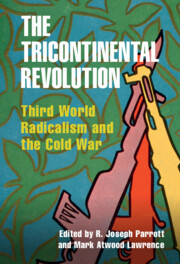The Tricontinental Revolution
The Tricontinental Revolution provides a major reassessment of the global rise and impact of Tricontinentalism, the militant strand of Third World solidarity that defined the 1960s and 1970s as decades of rebellion. Cold War interventions highlighted the limits of decolonization, prompting a generation of Global South radicals to adopt expansive visions of self-determination. Long associated with Cuba, this anti-imperial worldview stretched far beyond the Caribbean as activists struggled to unite international revolutions around programs of socialism, armed revolt, economic sovereignty, and confrontational diplomacy. Linking independent nations with nonstate movements from North Vietnam through South Africa to New York City, Tricontinentalism encouraged marginalized groups to mount radical challenges to the United States and the inequitable Eurocentric international system. Through eleven expert essays, this volume recenters global political debates on the priorities and ideologies of the Global South, providing a new framework, chronology, and vocabulary for understanding the evolution of anti-colonial and decolonial politics. This title is also available as Open Access on Cambridge Core.
R. Joseph Parrott is Assistant Professor of History at The Ohio State University. He is a historian of diplomacy, transnational activism, and US-Africa relations, with an emphasis on the intersection of decolonization, race, and domestic politics.
Mark Atwood Lawrence is Professor of History at the University of Texas at Austin. He has written extensively on twentieth-century America and especially American foreign relations. His most recent book is The End of Ambition: The United States and the Third World in the Vietnam Era (2021).

